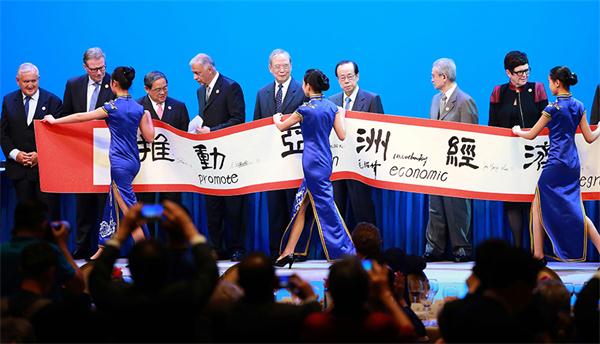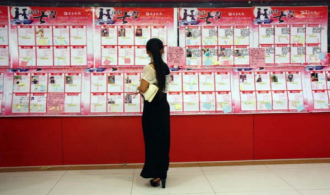Actions speak louder than words, and doubts
(China Daily) Updated: 2016-03-25 08:05
 |
|
Council members of the Boao Forum for Asia prepare to display a commemorative banner with their signatures during a dinner celebrating the forum's 15th anniversary in Boao, Hainan province, on March 23, 2016. [Photo/China Daily] |
On Thursday at the 2016 Boao Forum for Asia, China proposed establishing an Asian financial cooperation association to "improve markets and prevent financial turmoil".
This is a pertinent proposal at a time when the global economy is facing uncertainties and all economies have reason to worry about their security.
In 1997 and 1998, when much of Asia was experiencing financial turmoil, there were voices calling for a regional mutual help mechanism. But things just happened too quickly for anything to be done.
Having learned painful lessons from that period, many Asian countries have built stronger banking systems and larger exchange reserves. China, meanwhile, has grown to be a much larger economy, with more resources to share with its neighbors, and capable of taking on more responsibilities, as it should.
In Asia, developing countries alone recorded an average growth of 6.5 percent in 2015 and contributed more than 40 percent of the world's total growth. By helping them, China will also be helping itself and the world. Therefore, China's willingness to launch such a regional risk prevention initiative is easy to understand.
China has also earned practical experience from its earlier regional initiatives such as the Asian Infrastructure Investment Bank, an initiative dating back to 2013. The AIIB's recent announcement about a joint loan with the Asian Development Bank, a regional financial institution built in 1966, has effectively dissipated the once widespread doubt about China's intention to sponsor a fair regional business club while remaining non-confrontational and even cooperative with the existing global system.
China's action has matched its financial officials' claims that the AIIB is not going to be a Chinese toy, but an international vehicle.
The proposed Asian financial cooperation association should be seen in the same light. Setting up a regional mutual help mechanism, especially one that would cover an area sharing similar interests and tackling similar threats, does not by nature challenge the global system.
As some Chinese international relations researchers argue, so long as they stay open and fair, regional communities of mutual help and cooperation can make the global system stronger, rather than causing it to collapse or leading to competition for bloc interests or influences.
In theory, a global system with flourishing new clubs is less fragile than one with just a few old clubs. Diversity offers a good sense of security when so many difficult questions remain to be answered about the state of the global economy and financial market just a couple of years down the road.

I’ve lived in China for quite a considerable time including my graduate school years, travelled and worked in a few cities and still choose my destination taking into consideration the density of smog or PM2.5 particulate matter in the region.










